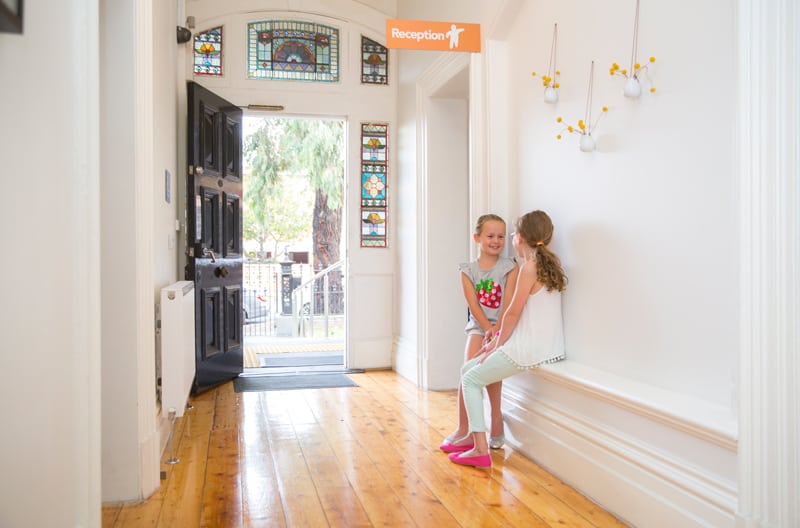Melatonin for sleep – should I use it?
Sleep problems can have a huge impact on kids as well as the whole family. Many parents consider turning to medication such as melatonin to help with the issue, but how safe is it?
Sleep is essential for all of us to be at our best. Now that the holidays are upon us and many of us are finishing work, it’s time to try and get some much-needed rest. But for many kids, and adults, falling asleep can be very hard, especially for kids with autism, ADHD or other neurodevelopmental problems.
The use of melatonin has been very topical this year, with concerns raised about its safety in kids. Sales have increased in Australia, the USA and in Europe and melatonin is increasingly being used as a tool to treat sleep problems in children. I tried it with success for a few months this year for my eldest daughter after a long period of her struggling to get to sleep. She tolerated it very well and had no side effects, which is what I find with most of my patients. However, it seems that in some cases, melatonin is being used instead of ensuring good sleep practices (I promise I tried everything else first!).
So what exactly is melatonin?
Melatonin is a hormone that is produced by a gland in the brain in response to the dark stimulus created as the sun goes down. It helps to regulate the body clock in almost everyone, and is often used for jet lag, as well as for inducing sleep (although it doesn’t work in everyone). It can help some kids fall asleep faster and to stay asleep for longer.
However, melatonin is a hormone, which can have effects throughout the body. Studies in animals have shown impacts on the reproductive system and other systems, such as cardiovascular, immune and metabolic systems. The research tells us that most studies have been small and that the subjects have not been followed for long periods of time. A meta-analysis that combined the findings from19 adult and child studies in 2013 found a small impact on sleep onset, total sleep time and sleep quality (1). However, a randomised study in children aged three-15 years with neurodevelopmental disorders in 2012 found a bigger effect in that melatonin improved sleep onset by 45 minutes and waking time by 30 minutes (2). Similarly, a study in autistic children with a mean age of six years found that 3mg of melatonin advanced sleep onset by 36 minutes and total sleep time by 71 minutes (3). The Australasian Sleep Association says that melatonin is safe and may benefit both typically developing children and children with neurodevelopmental disorders when used in the short-term and that to date the small number of long-term studies in children are also safe. However, longer-term studies are needed. Short-term side effects may include some morning sleepiness and occasionally bedwetting, headache, nausea, dizziness or diarrhea. It may also cause persistent sleepiness during the day, although this is uncommon.
My advice is that melatonin should only be used when sleep hygiene and bedtime routines are as good as they can be and sleep is a big problem, particularly for children with autism, ADHD or vision impairment. In children with autism, melatonin has also helped to improve their communication, repetitive behaviours, social withdrawal and anxiety (see the book by Terry Katz below).
Here are my top tips to optimise your child’s sleep, including using melatonin:
- In the RCH Australian Child Health Poll, excessive screen time emerged as the top ‘big problem’ for the health of Australian children and teenagers today. It’s a problem we all struggle with and it can have a particularly big impact on sleep. There should be no screen time for at least one hour before bed because “blue-white light” exposure from screens actually delays the natural secretion of melatonin which occurs one to three hours before bedtime. I’d recommend no TV, iPads, smartphones or e-books one hour before bed for both pre-school and school-aged kids. You may even choose to reduce the brightness settings on the screens during homework time in the evening.
- Behavioural strategies should always be tried prior to using a medication such as melatonin. There is a role for melatonin when other strategies are not working.
- Rule out medical causes of insomnia, such as having caffeinated drinks before bed or restless legs syndrome.
- Melatonin should be given at least one hour before bedtime to work best.
- Lower doses of melatonin are generally as effective as higher doses and the lowest possible dose should be used. Most often 1-3mg one hour before bed is used in kids as a starting point.
Always discuss melatonin use with your doctor as part of managing your child’s sleep problems overall and if needed ask for a referral to see a sleep specialist. Try to use it only if your child really needs it, as opposed to using it every night. If your child has been on it for a long time and is now sleeping well, perhaps try reducing the dose to see if they still need it.
Useful references:
- Ferracioli-Oda E et al. PLoS ONE 2013; 8 e63773
- Gringas P et al. BMJ 2012; 345: e6664
- Cortesi et al. J Sleep Res. 2012; 21:700-9
- Solving Sleep Problems in Children with Autism Spectrum Disorders: A Guide for Frazzled Families, by Terry Katz


